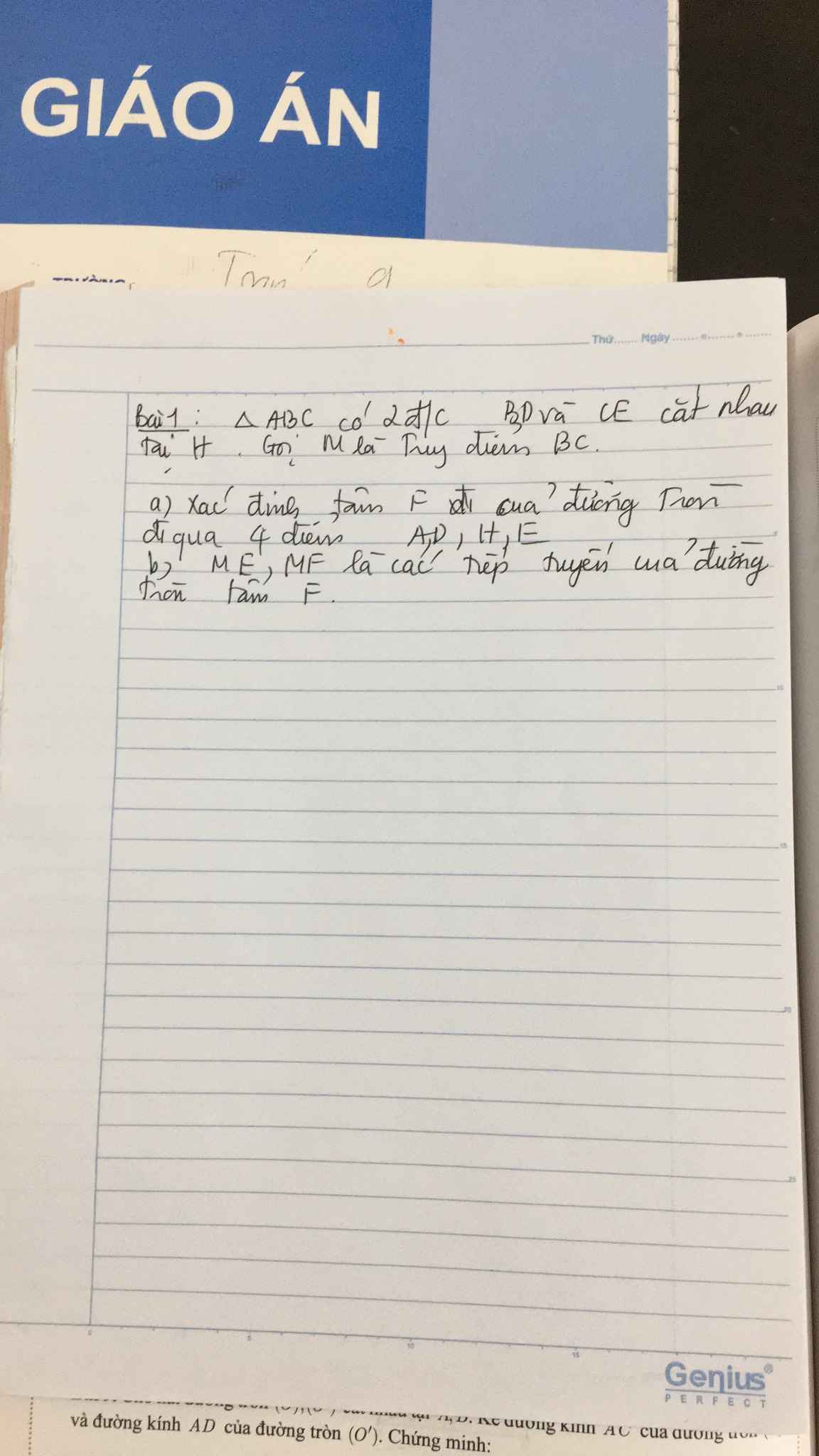tìm x thuộc Z để A= 4x-1 / x +2 là số nguyên
Hãy nhập câu hỏi của bạn vào đây, nếu là tài khoản VIP, bạn sẽ được ưu tiên trả lời.


ĐKXĐ: \(x\ne\pm3\)
a
Khi x = 1:
\(A=\dfrac{3.1+2}{1-3}=\dfrac{5}{-2}=-2,5\)
Khi x = 2:
\(A=\dfrac{3.2+2}{2-3}=-8\)
Khi x = \(\dfrac{5}{2}:\)
\(A=\dfrac{3.2,5+2}{2,5-3}=\dfrac{9,5}{-0,5}=-19\)
b
Để A nguyên => \(\dfrac{3x+2}{x-3}\) nguyên
\(\Leftrightarrow3x+2⋮\left(x-3\right)\\3\left(x-3\right)+11⋮\left(x-3\right) \)
Vì \(3\left(x-3\right)⋮\left(x-3\right)\) nên \(11⋮\left(x-3\right)\)
\(\Rightarrow\left(x-3\right)\inƯ\left(11\right)=\left\{\pm1;\pm11\right\}\\ \Rightarrow x\left\{4;2;-8;14\right\}\)
c
Để B nguyên => \(\dfrac{x^2+3x-7}{x+3}\) nguyên
\(\Rightarrow x\left(x+3\right)-7⋮\left(x+3\right)\)
\(\Rightarrow-7⋮\left(x+3\right)\\ \Rightarrow x+3\inƯ\left\{\pm1;\pm7\right\}\)
\(\Rightarrow x=\left\{-4;-11;-2;4\right\}\)
d
\(\left\{{}\begin{matrix}A.nguyên.\Leftrightarrow x=\left\{-8;2;4;14\right\}\\B.nguyên\Leftrightarrow x=\left\{-11;-4;-2;4\right\}\end{matrix}\right.\)
=> Để A, B cùng là số nguyên thì x = 4.


a: Để B nguyên thì \(-7⋮x+3\)
\(\Leftrightarrow x+3\in\left\{1;-1;7;-7\right\}\)
hay \(x\in\left\{-2;-4;4;-10\right\}\)
b: Để A là số nguyên thì \(3x+2⋮x-3\)
\(\Leftrightarrow x-3\in\left\{1;-1;11;-11\right\}\)
hay \(x\in\left\{-2;-4;14;-8\right\}\)
Để A và B cùng là số nguyên thì \(x\in\left\{-2;-4\right\}\)

Bài 1 :
a, \(A=\frac{2x^2-4x+8}{x^3+8}=\frac{2\left(x^2-2x+4\right)}{\left(x+2\right)\left(x^2-2x+4\right)}=\frac{2}{x+2}\)
b, Ta có : \(\left|x\right|=2\Rightarrow\orbr{\begin{cases}x=2\\x=-2\end{cases}}\)
TH1 : Thay x = 2 vào biểu thức trên ta được :
\(\frac{2}{2+2}=\frac{2}{4}=\frac{1}{2}\)
TH2 : Thay x = -2 vào biểu thức trên ta được :
\(\frac{2}{-2+2}=\frac{2}{0}\)vô lí
c, ta có A = 2 hay \(\frac{2}{x+2}=2\)ĐK : \(x\ne-2\)
\(\Rightarrow2x+4=2\Leftrightarrow2x=-2\Leftrightarrow x=-1\)
Vậy với x = -1 thì A = 2
d, Ta có A < 0 hay \(\frac{2}{x+2}< 0\)
\(\Rightarrow x+2< 0\)do 2 > 0
\(\Leftrightarrow x< -2\)
Vậy với A < 0 thì x < -2
e, Để A nhận giá trị nguyên khi \(x+2\inƯ\left(2\right)=\left\{\pm1;\pm2\right\}\)
| x + 2 | 1 | -1 | 2 | -2 |
| x | -1 | -3 | 0 | -4 |
2.
ĐKXĐ : \(x\ne\pm2\)
a. \(B=\frac{x^2-4x+4}{x^2-4}=\frac{\left(x-2\right)^2}{\left(x-2\right)\left(x+2\right)}=\frac{x-2}{x+2}\)
b. | x - 1 | = 2 <=>\(\hept{\begin{cases}x-1=2\\x-1=-2\end{cases}}\)<=>\(\hept{\begin{cases}x=3\\x=-1\end{cases}}\)
Với x = 3 thì \(B=\frac{3-2}{3+2}=\frac{1}{5}\)
Với x = - 1 thì \(B=\frac{-1-2}{-1+2}=-3\)
Vậy với | x - 1 | = 2 thì B đạt được 2 giá trị là B = 1/5 hoặc B = - 3
c. \(B=\frac{x-2}{x+2}=-1\)<=>\(-\left(x-2\right)=x+2\)
<=> \(-x+2=x+2\)<=>\(-x=x\)<=>\(x=0\)
d. \(B=\frac{x-2}{x+2}< 1\)<=>\(x-2< x+2\)luôn đúng \(\forall\)x\(\ne\pm2\)
e. \(B=\frac{x-2}{x+2}=\frac{x+2-4}{x+2}=1-\frac{4}{x+2}\)
Để B nguyên thì 4/x+2 nguyên => x + 2\(\in\){ - 4 ; - 2 ; - 1 ; 1 ; 2 ; 4 }
=> x \(\in\){ - 6 ; - 4 ; - 3 ; - 1 ; 0 ; 2 }

\(A=\dfrac{4x-1}{x+2}=\dfrac{4\left(x+2\right)-9}{x+2}=4-\dfrac{9}{x+2}\)
Để A nguyên mà 4 nguyên
\(\Leftrightarrow x+2\inƯ\left(9\right)=\left\{1;-1;3;-3;9;-9\right\}\\ \Leftrightarrow x\in\left\{-1;-3;1;-5;7;-11\right\}\)
A=(4x+8-9)/(x+2)=2- 9/(x+2)
A€Z <=> 9 chia hết (x+2)
<=> x+2 € Ư(9)={±1,±3,±9}
<=> x€{...}
KH đk